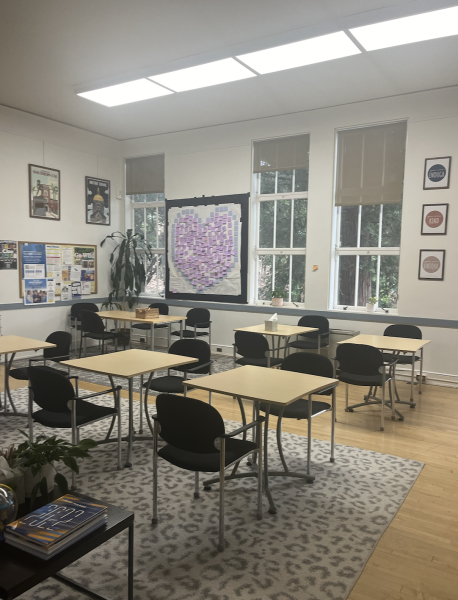Cultural Appropriation: A Halloween PSA
By Luisa Laguisma
Staff Writer
Oftentimes when browsing through social media you may stumble upon people wearing bindis, braids, henna, and various aspects that emblazon a certain cultural identity, but the people wearing them not being of that culture themselves. Whether it’s girls bearing bindis during music festival season or your favorite celeb dressing up as a Native American for halloween, cultural appropriation can be defined as taking aspects of someone else’s culture and using it to your benefit while dismissing where it came from. Though it seems as if cultural appropriation is a new concept and has everyone walking on eggshells, it is far from new.
When a group or certain community has been oppressed and subject to harsh treatment for a long time and suddenly their culture is claimed by other people–it allows for others to take away from that culture while totally disregarding what that group went through.
For example, when an African American wears multiple braids it is seen as ‘ghetto’ but when a caucasian wear braids she is seen as otherwise — cue the Kardashian Klan. The Kardashians have franchised and commodified their own family name on the backs of Black culture. The women in the family have been seen with cornrows or box braids that is rooted in black culture and the hairstyle was only recently approved back in 2014 for black servicewomen in the U.S Military.
A common refutation to cultural appropriation is that it is actually showing appreciation for another culture, it is at the very least showing appreciation for another’s culture. Cultural appreciation or exchange on the other hand, is when you use features of another culture but only with the intention of honoring the people it came from. Think going to an Indian Wedding where wearing traditional dress or getting henna might be recommended. Yet, when people sport Japanese Kimonos or Chinese Cheongsams all for the sake of their aesthetic, it can be make the general public forget where the roots of such garments come from.
Think back to last year’s debacle when Keziah Daum, a White high school student, wore a traditional Chinese Cheongsam to prom and set the whole internet to a rage. Many of people of Asian descent, who found it offensive, were called insensitive. However, taking aspects from another culture can actually be hurtful and offensive to people, so they have all the right to be outraged when their culture is discarded.
The racist effects of appropriation dehumanize people in a way that make them only characters and not real people. When people mock another’s identity, it silences people when it allows the more privileged to speak for them. Cultural appropriation is a direct byproduct of racism itself. It is people exploiting and making profit off of others. It does not help culture at all, it turns culture into a costume, a stereotype, and it makes people feel small and used. Dressing as a stereotypical geisha or mexican man for Halloween sends the ignorant message of, “This is how we see you and nothing else.”
With Halloween just around the corner, dressing like your favorite rapper or cultural icon who happens to be a person of color is easy, just don’t reach for that darker foundation and stick to yours. Cultural appropriation shouldn’t be made to scare you, but perhaps make you more aware of the systemic system that is so visibly seeped into our culture.



